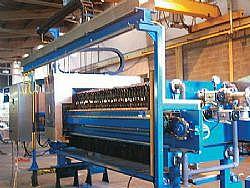EVERY business is affected by wastewater charges. Councils are tightening control on wastewater discharges and implementing tougher compliance requirements. In today’s ‘user pays’ world, it makes sense to look at ways of minimising what you are putting down the drain as it has an effect not only on the environment but your bottom line. Trade waste charges cover the costs of receiving, treating and disposing of wastewater from trade premises. All councils have different policies regarding trade waste, but the most common criteria for charging include Biological Oxygen Demand (BOD) or Chemical Oxygen Demand (COD) levels, flow rate or volume of discharge, and the level of suspended solids contained in the water. The BOD is a measure of the total quantity of oxygen required to oxidize all organic material in the water whilst COD measures the oxygen required to oxidize both organic and inorganic material. Effectively, they are a measure of the ‘strength’ of the waste. Reducing the BOD/COD levels can involve a number of factors depending on the makeup of the wastewater and requires significant expertise in the area of wastewater treatment to identify what process is going to be the most efficient and cost effective. Reducing the volume of water discharged can be achieved in a number of ways, including recycling water for use in other areas or simply changing process methods. Case study The Albany branch of Geosmart, the aerial photography and mapping company, came to Jonassen Industrial Projects (JIPL) to help them complete the local council’s Trade Waste Consent form. Although GeoSmart’s operations are mainly office-based, it has one photographic processing unit which uses a number of chemicals and waste from the machine was being discharged directly to the drain. By making some simple changes to the existing process system, significant reductions in COD and overall water usage (therefore wastewater) were achieved and JIPL was able to save Geosmart around 60 percent of their annual costs. While for a smaller business like Geosmart, simple process changes can easily reduce wastewater discharges, for larger industrial operations a wastewater treatment plant of some sort is required, ideally to reduce operating costs by: • Recycling water for re-use in further • Recovering valuable chemicals for • Removing solids for re-use, sale Choosing the most suitable wastewater treatment system can be a complex decision and depends on both the nature of your processes and contents of the waste. However, one of the most efficient and effective ways to reduce the BOD/COD content is to remove solids from the wastewater with a filter press. The use of Latham International filter presses for solids removal provides very clean water that can be re-used for process and washing operations. Removal of any solid from almost any liquid can be carried out efficiently and effectively with little operator expertise required. The press has few moving parts and produces a solid cake – for reuse, landfill disposal, boiler feed or drying. The major uses of the filter press are for back-wash duties on water treatment plants (using membrane squeeze technology), mining operations (for both process operations and wastewater treatment), aggregate/sand washing plants, small sewage plants (ideal for towns and villages away from central large WWTP facilities), chemical processing (electroplating wastes, tanneries, textiles, pharmaceuticals) through to polishing operations for oils and resins. After polymer dosing and/or chemical treatment, the filter press is a simple process with superior cost-effectiveness compared to most other filtration processes. They can be fully automated and even include automatic cloth washing systems and cake-release technologies. The filter press achieves higher cake solids than any other dewatering system, reducing transport and disposal costs. It has few moving parts and consequently very low maintenance and energy costs. JIPL has successfully completed a number of plants that not only solve particular wastewater discharge problems, but also allow for substantial recycling, removal of solids and chemical treatment to meet Discharge Consent limits. Initial consulting, preliminary trial and test work can be provided, through to full plant design, manufacture, installation and commissioning.
processing or cleaning operations;
re-use or safe disposal; and
or landfill.
Are you pouring money down the drain
General
Thursday, 02 February 2006






